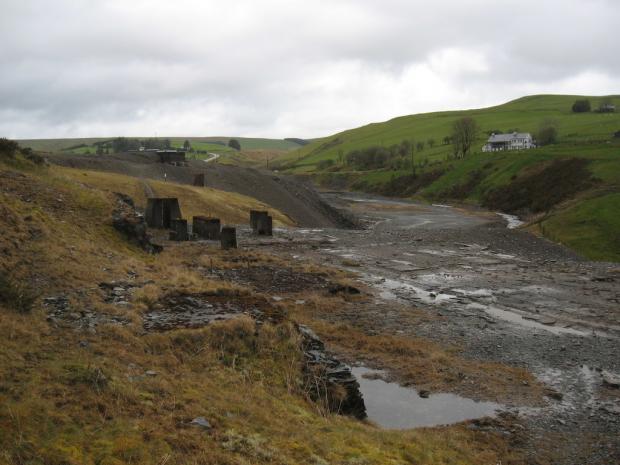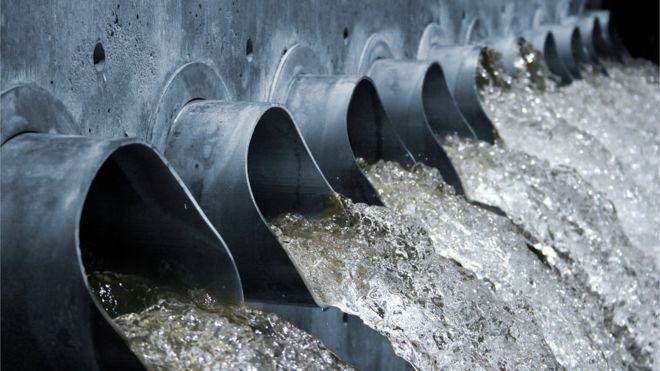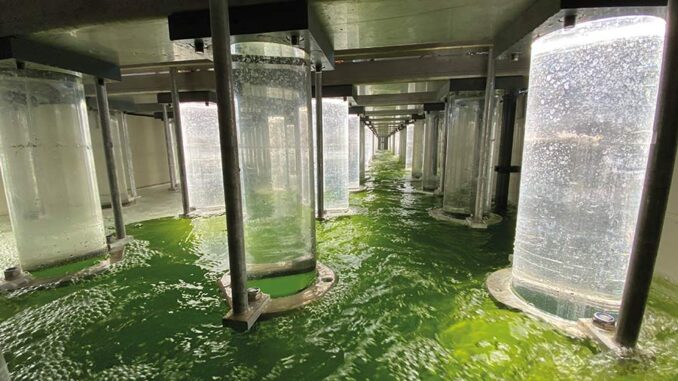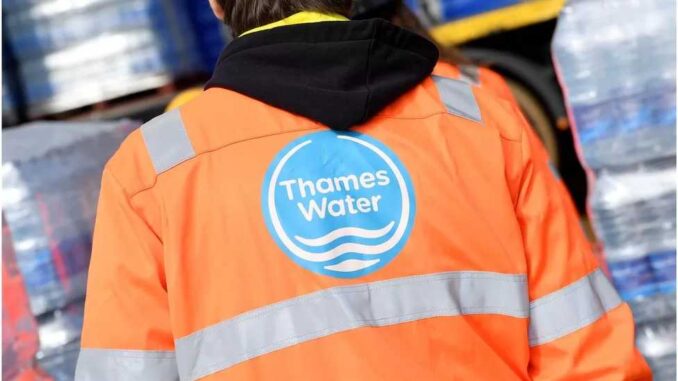Wessex Water and Anglian Water are at the top end of the scale, with average bills set to increase to £548 and £529 respectively.
The average household water and sewerage bill in England and Wales will rise by 6% or about £27 to £473 a year from April 1, the industry has confirmed.
Wessex Water and Anglian Water are at the top end of the scale, with average bills set to increase to £548 and £529 respectively, while Northumbrian customers will see the lowest average bills of £422.
Water UK said firms would invest a record £14.4 billion in return for customers’ money, to ensure supply security and “significantly reduce” the amount of sewage in rivers and seas.
The rise comes amid ongoing regulatory concern over dividends paid out by water firms to shareholders amid the cost-of-living crisis and public fury about sewage overflows into waters.
Water UK said bills were rising less than they did in the previous financial year, and argued that they would be around £60 higher today if they had kept pace with inflation since 2014.
The money raised from higher bills would help to build 10 new reservoirs, increase the capacity of dozens of wastewater treatment works and see more than 2,000 kilometres of pipes repaired and replaced, it said.
Companies would also increase support for low-income households to its highest level.
Water UK said the funds raised by increased water bills were guaranteed only to fund improvements in water and sewerage systems, and bills would automatically be reduced by the regulator if they were not delivered.
Among the projects set to receive investment over the coming year is the 25km Tideway super sewer, which will divert storm flows away from the River Thames for the first time, would be fully operational later in 2025, reducing sewage pollution into the river by 95%.
Work will begin on the Havant Thicket reservoir in Hampshire, a joint project between Portsmouth Water and Southern Water and the first reservoir to be built in the UK for more than 30 years.
Wessex Water said it was investing more than £150 million on sewage and stormwater capacity at its major water recycling centres near Bath, Bristol and Bournemouth.
Water UK chief executive David Henderson said: “Next year will see record levels of investment from water companies to secure the security of our water supply in the future and significantly reduce the amount of sewage in rivers and seas.
“Up and down the country customers will see the results of this investment with more than 2,000 kilometres of pipes being repaired or replaced and more capacity to treat sewage than ever before.
“At the same time support for customers is doubling with more than two million families now being with helped with their bills. Anyone with worries should contact their water company and, it is worth remembering, water companies will never cut anyone off or make them use a prepayment meter.”
Ofwat chief executive David Black said: “While water bills will vary depending on the circumstances of each household, the average increase forecasted for 2024/25 will be £27.40, equivalent to about £2.30 a month.
“We are very aware, for those who are already struggling, this will be a real worry. As such, water companies must do all they can to protect those who are most in need of a helping hand.
“We would encourage anyone who is worrying about how to pay a water bill to contact their water company and find out what schemes are on offer that could reduce bills, smooth payments or help with debt.”
Consumer Council for Water (CCW) chief executive Mike Keil said: “Almost a fifth of households say they struggle to pay their water bill and these rises will heap even greater pressure on low-income customers.
“If water companies are serious about rebuilding trust in the sector they should use some of their profits to help people who cannot afford another bill rise.
“The water industry made a commitment five years ago to end water poverty in England and Wales and it needs to keep that promise.
“Crisis-hit households need immediate relief and the long-term security of knowing they can afford something as essential as water, without having to make painful sacrifices.”
In December, South East Water revealed it paid out £2.3 million in dividends to investors despite widened losses and a £3 million cost hit from summer heatwaves and supply interruptions.
Details of the payout came as the supplier – which is under investigation by regulator Ofwat over its service to customers and record in maintaining a water supply – reported pre-tax losses of £18.1 million for the six months to September 30, against losses of £12.7 million a year earlier.
Just days earlier, troubled rival Thames Water announced a £37.5 million dividend to its parent company – with the payout being probed by Ofwat over concerns it may have broken rules designed to protect customers and the environment.
Water minister Robbie Moore said: “We expect water companies to put robust support in place for customers that are struggling to pay their bills, including bill discount schemes and adjusted payment plans.
“We are also working closely with regulators to hold companies to account for poor performance, driving better outcomes for both customers and the environment.”
Shadow environment secretary Steve Reed said: “This Conservative government has wilfully turned a blind eye to corruption at the heart of the water industry, leaving stinking, toxic sewage to ruin our countryside.
“It is staggering that water bosses are lining their pockets with millions in bonuses, while asking consumers to foot the bill.
“Labour will put failing water companies under special measures. We will give the regulator new powers to block the payment of any bonuses until water bosses have cleaned up their filth. With Labour, the polluter – not the public – will pay.”
Source: Shropshire Star 2nd February 2024












